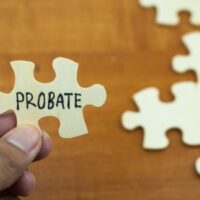Does Having a Will mean my Estate will Avoid Probate?

Building a lasting estate plan might feel overwhelming – but fear not. The experienced legal team at Suncoast Civil Law have helped countless clients through every step of the process, and have answers for all of your probate and estate planning questions.
One of the most common questions initially asked by those just starting down the path to building their own estate plan, is – will my last will and testament be enough? Will that make it so my estate will not go through probate?
This article is designed to help readers begin to understand certain concepts surrounding Florida probate and last will and testaments, to include what makes a last will and testament valid and enforceable. For experienced advice and sound legal counsel as you build your own estate or grapple with probate, contact an esteemed wills & probate attorney at Suncoast Civil Law.
First things First – What is Probate?
The Florida probate process is the court-supervised, legal process of administering the estate of someone who has passed away. Specifically, probate also plays a role when assets that are owned solely by the deceased have not been validly, legally set aside to an heir or beneficiary.
Probate includes processes such as gathering and inventorying estate assets, paying off debts and taxes, identifying rightful heirs and beneficiaries, and distributing assets to the rightful heirs and beneficiaries.
Does a Last Will and Testament Avoid Probate?
It is important to understand that probate is used when assets need to transfer from the deceased/estate to another, rightful heir/beneficiary. So, the quick answer is no – a last will and testament does not have the effect of making an estate avoid probate.
This is because the last will and testament is not a vehicle that actually transfers property – it is a set of instructions on HOW assets are to be transferred: to whom the assets are to be given to. This is different from, say, some kinds of trusts. Some trusts work in such a way that when an item is placed in the trust, the asset transfers ownership.
What this means at the end of the day, is that when a last will and testament is filed with the court, the court will review the will, rule on whether it considers the will to be validly executed, and then have the distribution of the estate follow the instructions set forth in the will.
When is a Will Enforceable?
Fla. Stat. §732.502, includes instructions that to be valid a will must be signed by a person of sound mind in front of two witnesses. An experienced attorney can help further advise you on what a court will look for when deciding whether to accept a will, and help address any concerns you might have.
What Should Be Done with the Will?
Florida law directs that a last will and testament needs to be filed with the clerk of the court in the county where the decedent was living within 10 days of the death of the individual. A death certificate should also be filed along with the will. But if it is not filed within that timeframe, or there is no last will and testament, do not panic – the law provides for these situations, and an experienced wills & probate attorney can help advise on any concerns you may have.
Contact Suncoast Civil Law
An esteemed Sarasota wills & probate attorney at Suncoast Civil Law can help you through every step of building your own estate plan, and advise on the probate process as well. For experienced counsel you can trust, reach out to our firm and begin speaking with the team today.
Sources:
leg.state.fl.us/statutes/index.cfm?App_mode=Display_Statute&URL=0700-0799/0732/0732.html
theconversation.com/legal-wrangling-over-estate-of-jimmy-buffett-turns-his-widows-huge-inheritance-into-a-cautionary-tale-259116
